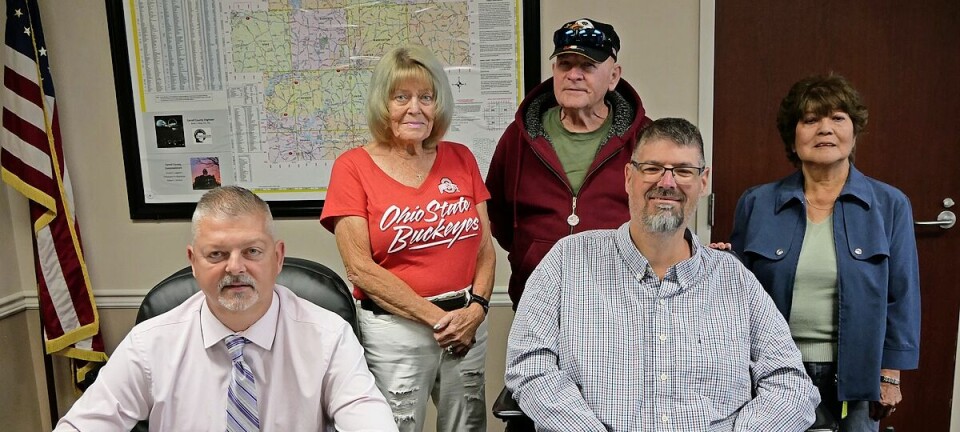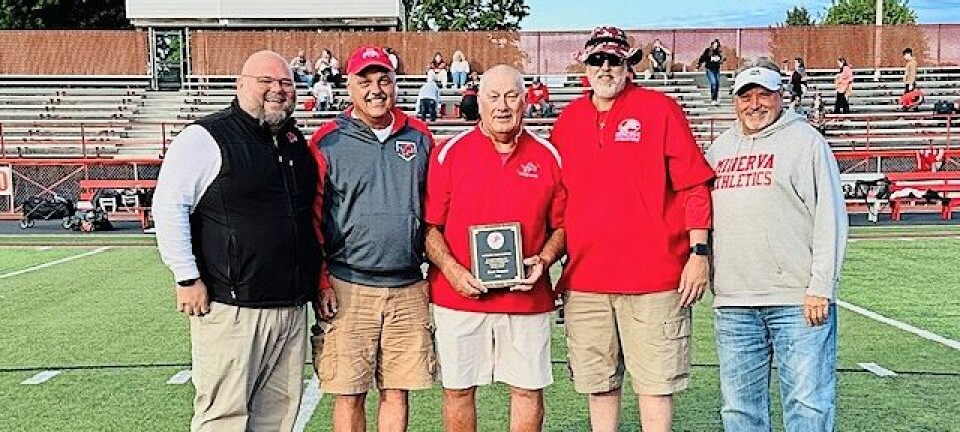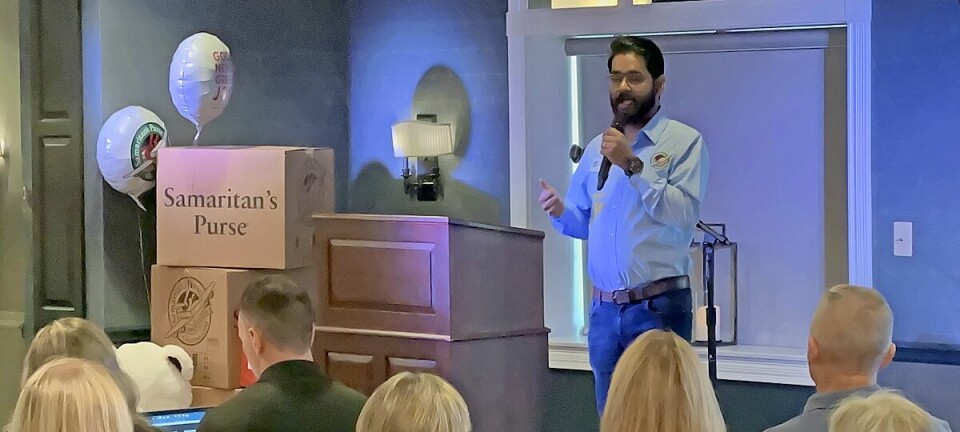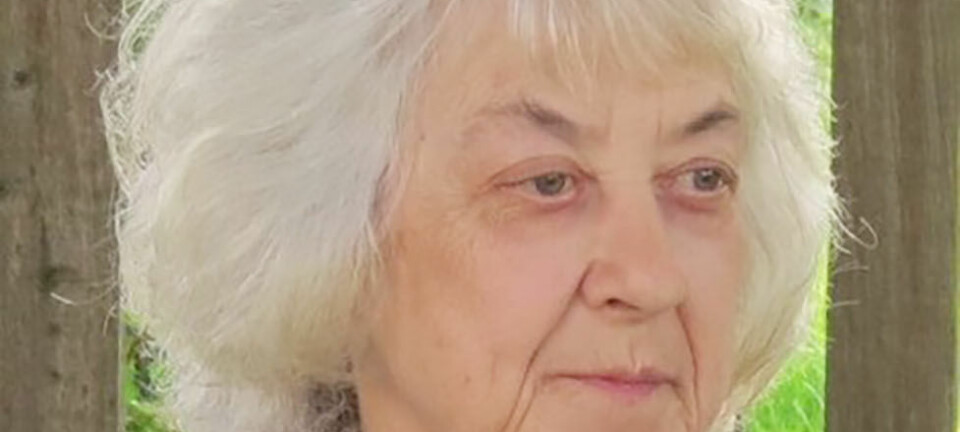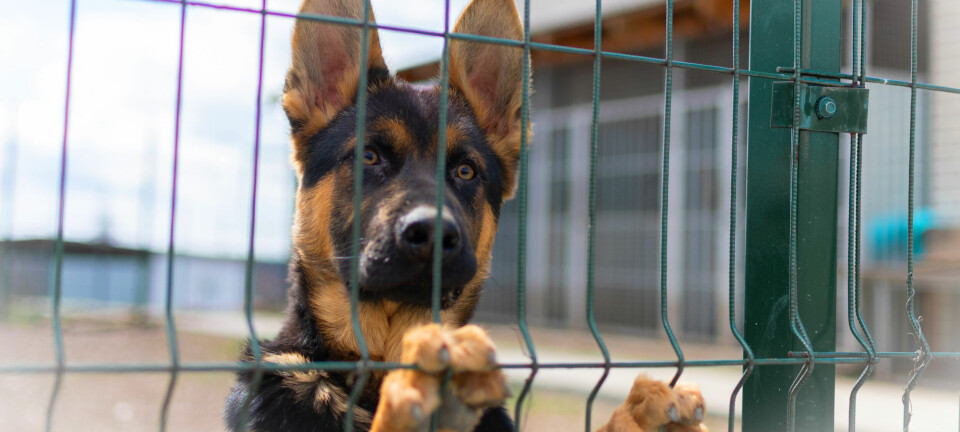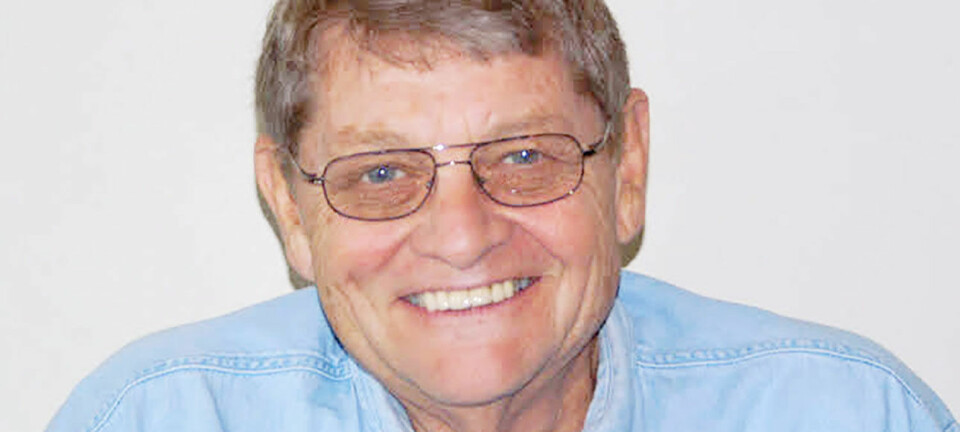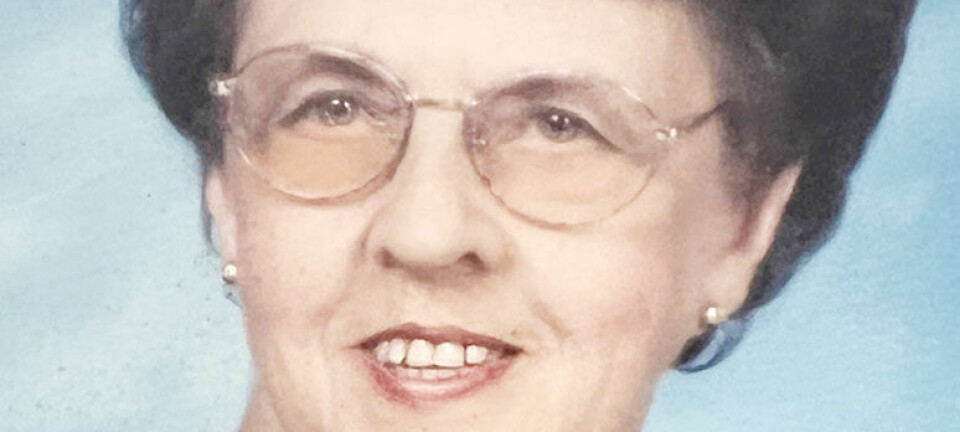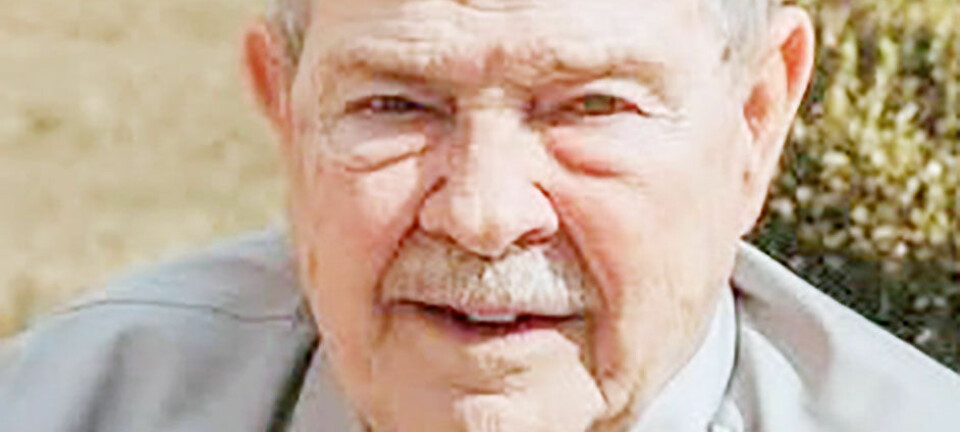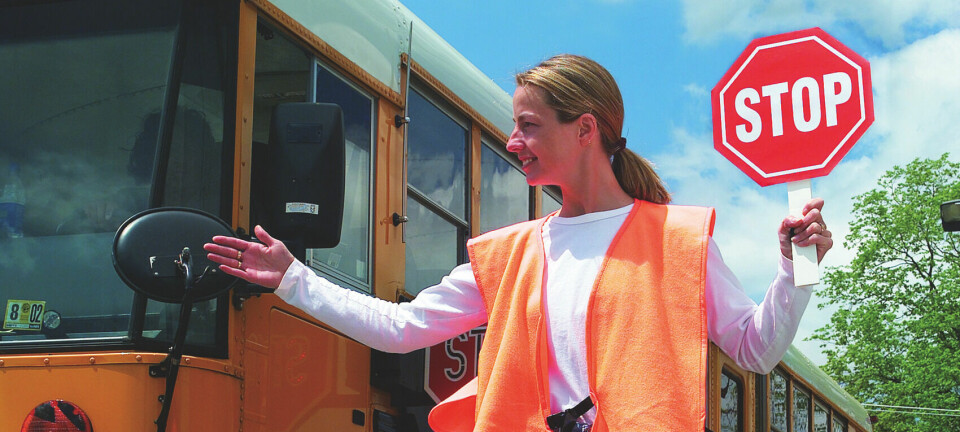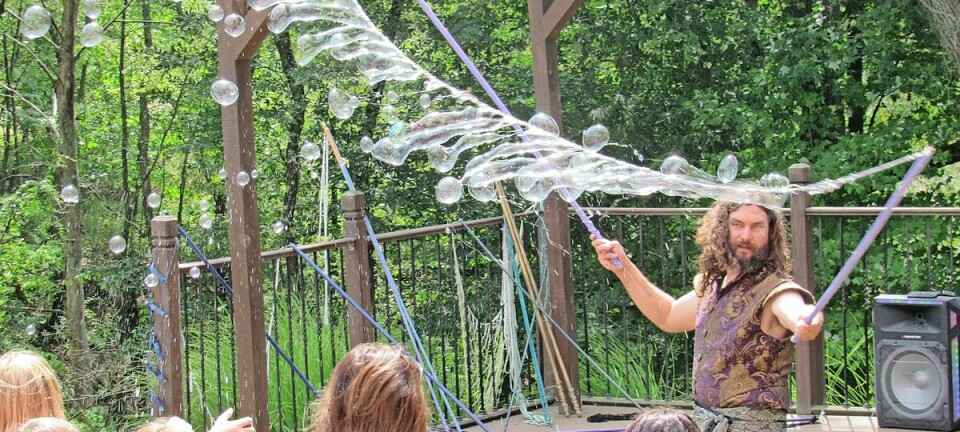No ‘just’ or ‘only’ staff when it comes to education
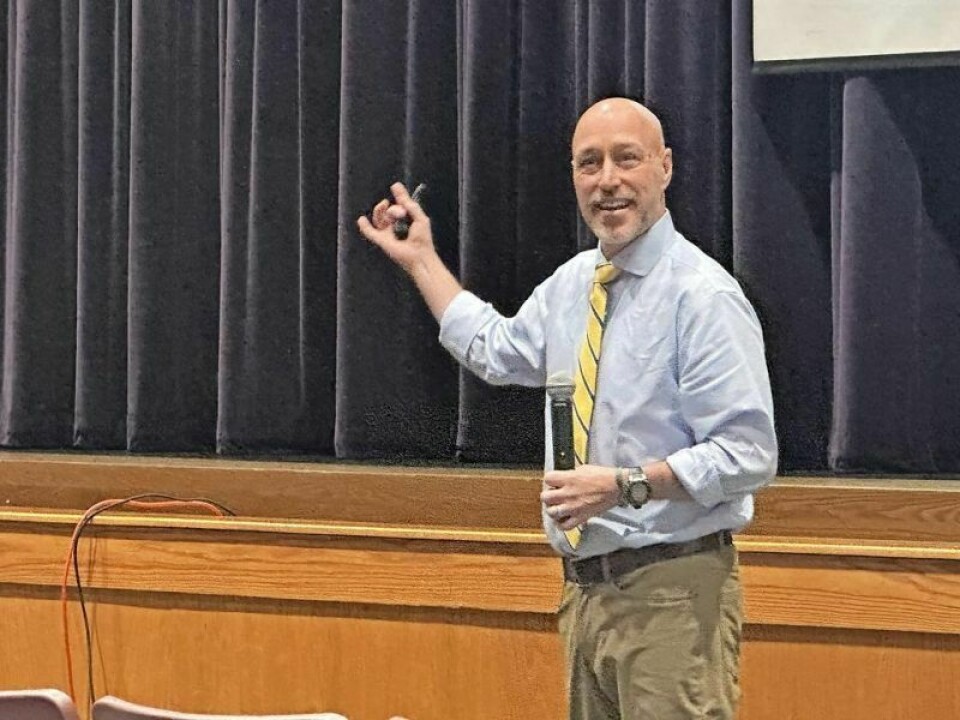
Joe Sanfelippo isn’t one to mince words when it comes to inspiring educators and presenting them with a picture of self-worth.
To him, teachers aren’t “just teachers,” custodians aren’t “just custodians,” bus drivers aren’t “just bus drivers” and there are no “just” positions in a school district.
On Thursday, Dec. 21 at the West Holmes staff in-service day, Sanfelippo, the superintendent from Falls Creek, Wisconsin, spoke to the entire district staff and made sure everyone in attendance understood every individual connected to the school has value and is important in inspiring today’s students to learn and grow.
However, he said before that can happen, one thing must take place, and that is for educators to realize their worth and continue to reiterate to themselves they are worthy of making a difference.
“Know your value and make sure that the person beside you knows their value,” Sanfelippo said to the staff. “There’s a feeling of heartwarming joy and pride in our schools today, but the problem is that the people who are telling the stories about schools don’t have anything to do with schools. If we can change the conversation, then it allows the people doing the work in schools to walk into work each morning feeling better about their roles.”
He said there are three main values: intention, connection and direction. Sanfelippo said when teachers focus on those topics, they can accomplish great things.
“You take care of yourself so you can take care of your kids,” Sanfelippo said. “Be proud of who you are and what you do. You’re not only or just anything. When you say that you’re just or only, you devalue all of your work. But not only do you devalue your work, you give the person you’re talking to license to do exactly the same. Nobody can change the way they talk about us until we change the way we talk about us.”
Sanfelippo laid it all on the line when it comes to inspiring educators to embrace themselves as worthy of educating and leading today’s students.
Like a runner in a race or an underdog team playing for the long haul, he shared one simple message to the staff.
“Give yourself a chance,” Sanfelippo said. “I don’t have all the answers and I don’t pretend to but give yourself a chance when it comes down to telling people about the incredible work you do.”
Sanfelippo went on to talk about how every person has an impression of what takes place in school districts, and most of that impression is based on their own personal experiences in school or through their children’s lives at school.
He said when people talk about what educators do, it is based on what happened to them 25 years ago when they had a negative experience in school, and people believe that makes them an expert in school without understanding everything educators go through on a daily and weekly basis.
“People think you work nine months out of the year and that it’s easy,” Sanfelippo said. “Those people need to come into a classroom and try to teach. They wouldn’t last nine minutes. Come to our school, sit down in a second-grade class, stare into the eyes of an 8-year-old and make them feel safe. I dare people to tell me that my educators work nine months.”
He said regardless of what teachers do in the classroom, people are always going to be judged by others, people who don’t understand what a day at school is like and the challenges it brings.
“It’s like when you go to a game and you see a coach yelling at a kid,” Sanfelippo said. “Then that’s what people see. They don’t see the coach having multiple conversations with the kid, or him making sure a kid gets breakfast in the morning, or getting him home safely at night, or getting his homework done. They don’t see all of that. They see that one interaction, and that’s what they judge them on.”
He said it is the same with interactions with parents with educators, where parents see only a snapshot of what takes place at school and make a judgment based on one interaction.
Sanfelippo said the challenges and chaos of school today force teachers to prepare for one reality with an understanding that things are going to go haywire, get off track, and spiral in new and inventive ways, with each day bringing new challenges.
He said each day can be an enormous mess, but those messy days open the door for something special.
“This is what you do (as educators),” Sanfelippo said. “This is where all the long nights and early mornings are. This is where all the things you don’t want to do lives, right in that mess. But that is where all the great stuff is too. But if all we see is the mess and don’t see the great things, the mess is all we recognize, and that is when you start to wonder if it’s worth it.”
He said taking time to share successes and revel in the accomplishments is critical for educators to understand the value they provide. He said it’s invaluable to lean on one another as educators and work together to change the narrative.
Sanfelippo said he thinks parents today are doing the best they can to raise their children, but parents must realize school is a partnership and everyone is working toward the same goal, which is building up today’s young people to build character and learn.
“My hope is that teachers leave here feeling good about what they do,” Sanfelippo said. “I don’t want to overwhelm them. I just want them to look at things a little bit differently. As educators we are given a list of things to do, and we get so bound by the list we forget about all of the other great stuff taking place.
“Our kids want to be seen, heard and valued. And guess what? Teachers do too. We are spending so much time (as educators) making sure those things happen for our kids that we forget that we as teachers need that too.”
To learn more about Sanfelippo, he has profiles on Instagram, Facebook and YouTube, as well as a newly released book titled “Lead from Where You Are.”



